
Meditation is a practice in which an individual uses a technique – such as mindfulness, or focusing the mind on a particular object, thought, or activity – to train attention and awareness, and achieve a mentally clear and emotionally calm and stable state.
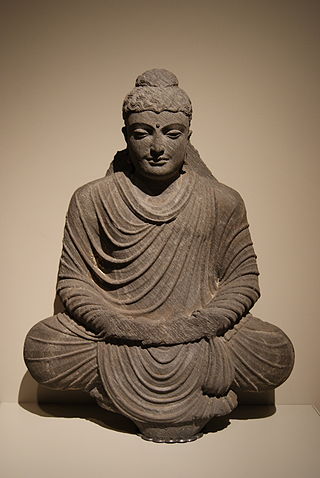
Ānāpānasati, meaning "mindfulness of breathing", paying attention to the breath. It is the quintessential form of Buddhist meditation, attributed to Gautama Buddha, and described in several suttas, most notably the Ānāpānasati Sutta.
Mindfulness is the cognitive skill, usually developed through meditation, of sustaining meta-attention of the contents of one's own mind in the present moment. Mindfulness derives from sati, a significant element of Hindu and Buddhist traditions, and is based on Zen, Vipassanā, and Tibetan meditation techniques. Though definitions and techniques of mindfulness are wide-ranging, Buddhist traditions describe what constitutes mindfulness such as how past, present and future moments arise and cease as momentary sense impressions and mental phenomena. Individuals who have contributed to the popularity of mindfulness in the modern Western context include Thích Nhất Hạnh, Joseph Goldstein, Herbert Benson, Jon Kabat-Zinn, and Richard J. Davidson.
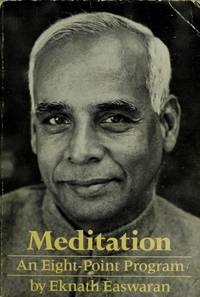
Passage Meditation is a book by Eknath Easwaran, originally published in 1978 with the title Meditation. The book describes a meditation program, also now commonly referred to as Passage Meditation. Easwaran developed this method of meditation in the 1960s, and first taught it systematically at the University of California, Berkeley.
Daniel B. Harris is a retired American journalist for ABC News. He was an anchor for Nightline and co-anchor of the weekend edition of Good Morning America.

Calmness is the mental state of peace of mind, being free from agitation, excitement, or disturbance. It also refers being in a state of serenity, tranquillity, or peace. Calmness can most easily occur for the average person during a state of relaxation, but it can also be found during much more alert and aware states. Some people find that focusing the mind on something external, such as studying, or internal, such as breathing, can be very calming.

The psychological and physiological effects of meditation have been studied. In recent years, studies of meditation have increasingly involved the use of modern instruments, such as fMRI and EEG, which are able to observe brain physiology and neural activity in living subjects, either during the act of meditation itself or before and after meditation. Correlations can thus be established between meditative practices and brain structure or function.
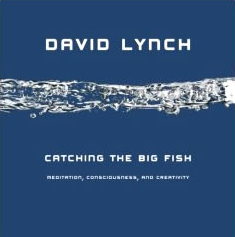
Catching the Big Fish: Meditation, Consciousness, and Creativity is an autobiography and self-help guide written by American filmmaker David Lynch. It comprises 84 vignette-like chapters in which Lynch comments on a wide range of topics "from metaphysics to the importance of screening your movie before a test audience." Catching the Big Fish was inspired by Lynch's experiences with Transcendental Meditation (TM), which he began practicing in 1973. In the book, Lynch writes about his approach to filmmaking and other creative arts. Catching the Big Fish was published by Tarcher on December 28, 2006.
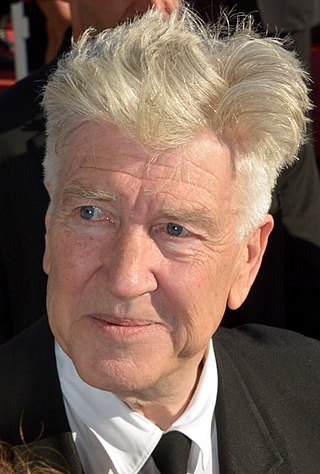
The David Lynch Foundation for Consciousness-Based Education and World Peace is a global charitable foundation with offices in New York City, Los Angeles, and Fairfield, Iowa. It was founded by film director and Transcendental Meditation (TM) practitioner David Lynch in 2005 to fund the teaching of TM in schools. Over the years it has expanded its focus to include other "at-risk" populations such as the homeless, U.S. military veterans, African war refugees and prison inmates.
The Universal White Brotherhood (UWB) is a religious movement founded in Bulgaria in 1897 by Peter Duenow. It was later established in France in 1937 by Omraam Mikhaël Aïvanhov, one of Deunov's followers.
The Transcendental Meditation technique is the technique associated with the practice of Transcendental Meditation developed by the Indian spiritual figure Maharishi Mahesh Yogi. The practice involves the use of a private mantra, and is practised for 20 minutes twice per day while sitting comfortably with one's eyes closed. TM instruction encourages students not to be alarmed by random thoughts which may arise, but to easily return to the mantra when one becomes aware of this.
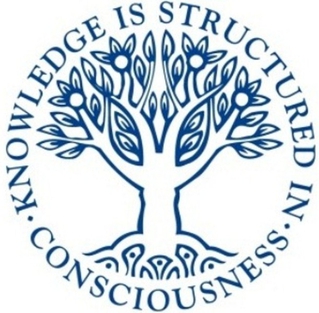
The Maharishi School is a non-academically selective free school in Skelmersdale and Lathom, Lancashire, UK. The school was founded in 1986 and uses "consciousness-based education" methods including Transcendental Meditation.
Samatha, "calm," "serenity," "tranquility of awareness," and vipassanā, literally "special, super, seeing ", are two qualities of the mind developed in tandem in Buddhist practice.
Transcendental Meditation in education is the application of the Transcendental Meditation technique in an educational setting or institution. These educational programs and institutions have been founded in the US, United Kingdom, Australia, India, Africa and Japan. The Transcendental Meditation technique became popular with students in the 1960s and by the early 1970s centers for the Students International Meditation Society were established at a thousand campuses in the US with similar growth occurring in Germany, Canada and Britain. The Maharishi International University was established in 1973 in the US and began offering accredited, degree programs. In 1977 courses in Transcendental Meditation and the Science of Creative Intelligence (SCI) were legally prohibited from New Jersey (USA) public high schools on religious grounds by virtue of the Establishment Clause of the First Amendment. This "dismantled" the TM program's use of government funding in U.S. public schools "but did not constitute a negative evaluation of the program itself". Since 1979, schools that incorporate the Transcendental Meditation technique using private, non-governmental funding have been reported in the US, South America, Southeast Asia, Northern Ireland, South Africa and Israel.
Headspace, a subsidiary of Headspace Health, is an English-American online company, specializing in meditation. It was incorporated in May 2010 in London, England, by Andy Puddicombe and Richard Pierson. It is headquartered in Santa Monica, California, with offices in San Francisco and London.
Mindfulness and technology is a movement in research and design, that encourages the user to become aware of the present moment, rather than losing oneself in a technological device. This field encompasses multidisciplinary participation between design, psychology, computer science, and religion. Mindfulness stems from Buddhist meditation practices and refers to the awareness that arises through paying attention on purpose in the present moment, and in a non-judgmental mindset. In the field of Human-Computer Interaction, research is being done on Techno-spirituality — the study of how technology can facilitate feelings of awe, wonder, transcendence, and mindfulness and on Slow design, which facilitates self-reflection. The excessive use of personal devices, such as smartphones and laptops, can lead to the deterioration of mental and physical health. This area focuses on redesigning and creating technology to improve the wellbeing of its users.

Calm.com, Inc., doing business as Calm, is a software company based in San Francisco, California. It produces meditation products, including guided meditations and Sleep Stories on its subscription-based app.

Peace Revolution is an online meditation platform aimed at young adults. The platform's primary focus is on the teaching of Samatha meditation but is also involved in other activities and events related to mindfulness and peace-building. Although the platform has a secular orientation, it does draw on principles of Buddhism. Buddhist monks from Thailand are often invited to lead meditation and mindfulness activities.
Beatles Ashram, also known as Chaurasi Kutia, is an ashram close to the north Indian city of Rishikesh in the state of Uttarakhand. It is located on the eastern bank of the Ganges river, opposite the Muni Ki Reti area of Rishikesh, in the foothills of the Himalayas. During the 1960s and 1970s, as the International Academy of Meditation, it was the training centre for students of Maharishi Mahesh Yogi, who devised the Transcendental Meditation technique. The ashram gained international attention between February and April 1968 when the English rock band the Beatles studied meditation there, along with celebrities such as Donovan, Mia Farrow and Mike Love. It was the setting for the band's most productive period as songwriters, where they composed most of the songs for their self-titled double album, also known as the "White Album".










